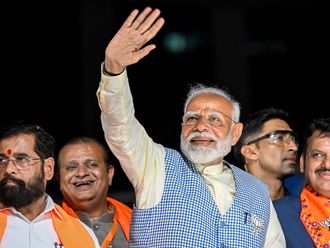Kuwait's National Assembly, elected less than two years ago, is likely to be dissolved due to the political deadlock that led to the resignation of the Cabinet on Monday.
The ministers complained of "a lack of cooperation" from the opposition-dominated parliament amid rising sectarian tensions, regional turbulence and non-stop confrontations between lawmakers and the government.
It will not be the first time the legislature is dismissed. It was dissolved a number of times before for similar reasons.
But it raises a serious issue. The assembly has always been accused of appeasing popular opinion, particularly the conservative segment of the population, at the expense of the development process by interfering in the executive branch's work and hindering many urgently needed infrastructure projects.
Its confrontational Islamist-leaning attitude forced, for example, the government to give up many tourism plans. Music concerts were banned. The country's image as an open-minded, tolerant society is being threatened by the many restrictions imposed on personal freedoms by the parliament.
This gave Kuwaiti democracy, the oldest in the region, a bad image. And this also explains why most people there think the assembly should be dissolved and new elections held, according to surveys published yesterday. But others ask why a new house would be any different.
And that is quite possible unless the voice of reason, in both the government and the elected legislature, won over the pursuit of small political gains and scoring "popular" points.
The division in Kuwait, underscored by the recent crisis over a eulogy to a slain Hezbollah commander, offered by two MPs, can lead to further instability if both branches of the government fail to cooperate.
Kuwaitis have high hopes in the Emir Shaikh Sabah Al Ahmad Al Sabah to end the constant quarrel, for the sake of the country and its proud democracy.







